Clearing the Air: Insights From the Inaugural IWBI Healthy Building Policy Summit (Part 1)
By Robert Nieminen
Published 09-26-24
Submitted by International WELL Building Institute
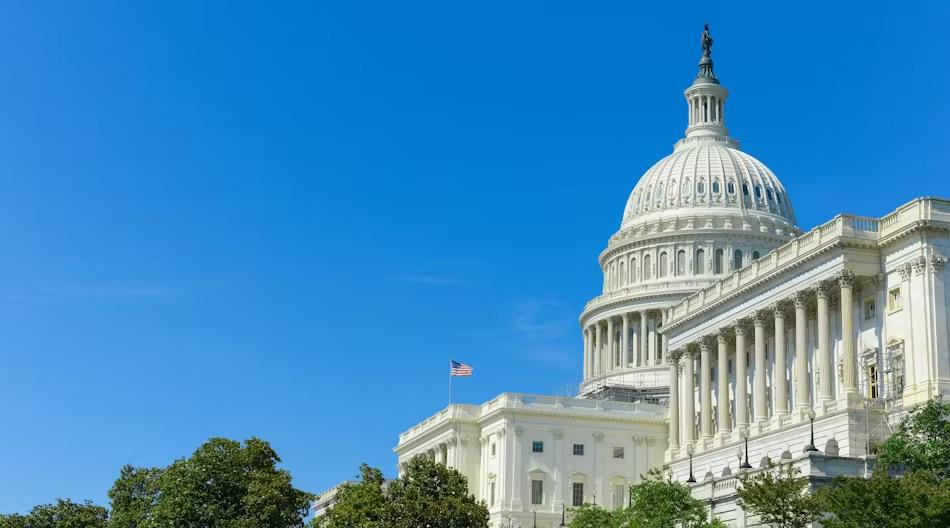
Originally published by Robert Nieminen on BUILDINGS.com
[Editor’s note: This is the first installment of a two-part report on the inaugural IWBI Healthy Buildings Summit held in Washington, D.C., on Sept. 16th. Read the second installment.]
If you’re reading this, the chances are high you’re in an indoor environment, given that we spend 90% of our time indoors. Now, take a deep breath.
How certain are you that the air in your building is clean or at least not going to make you sick? Unless your facility is equipped with indoor air quality sensors, you’re probably not sure.
That’s a problem more significant than many building owners and facilities managers realize. And it’s a challenge that was addressed head on at the inaugural International WELL Building Institute (IWBI) Healthy Building Policy Summit held at the Georgetown University McCourt School of Public Policy in Washington, D.C., on Sept. 16, for which BUILDINGS served as a media sponsor. The McCourt School’s new building, designed during the COVID pandemic, has achieved LEED Platinum designation and was the perfect backdrop for the event, which was the first public gathering in the space following its ribbon cutting ceremony.
Read the second installment of this two-part series.
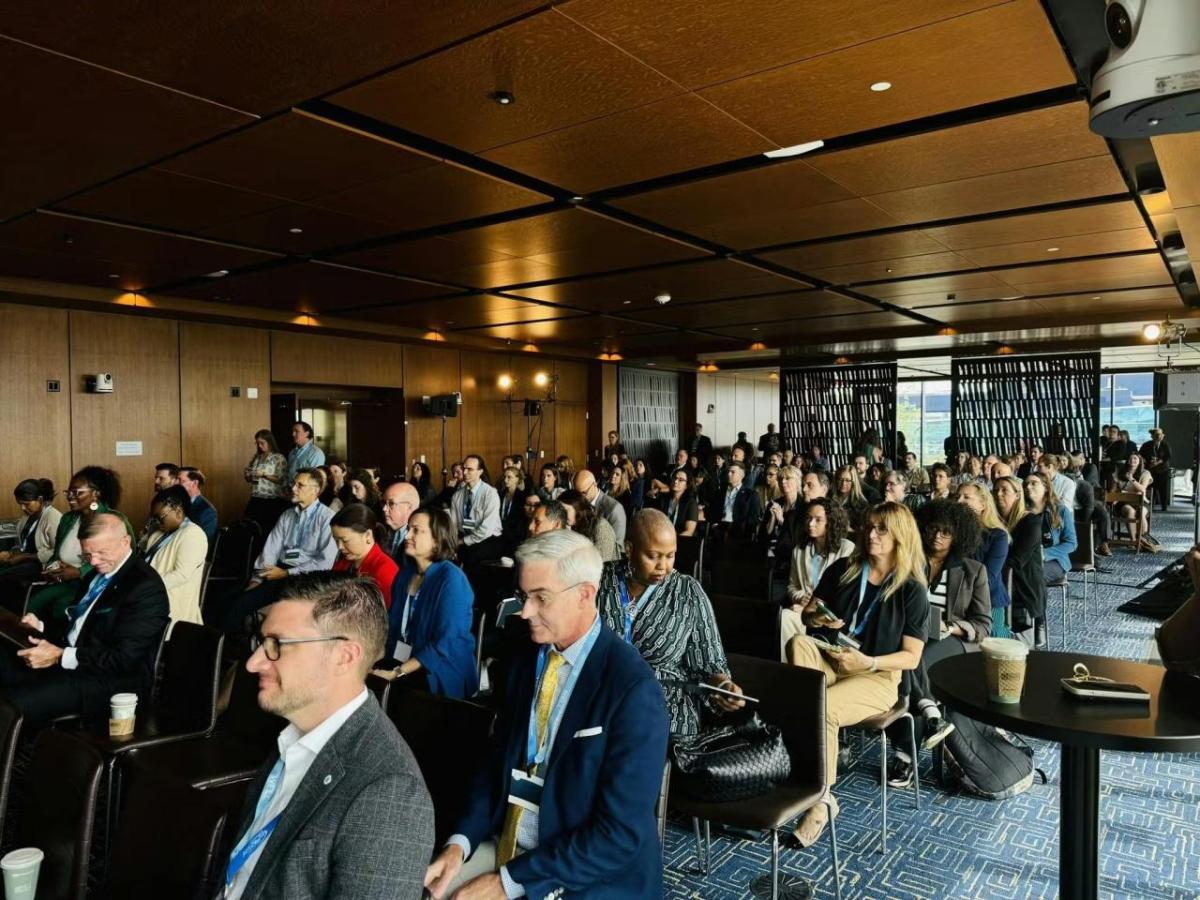
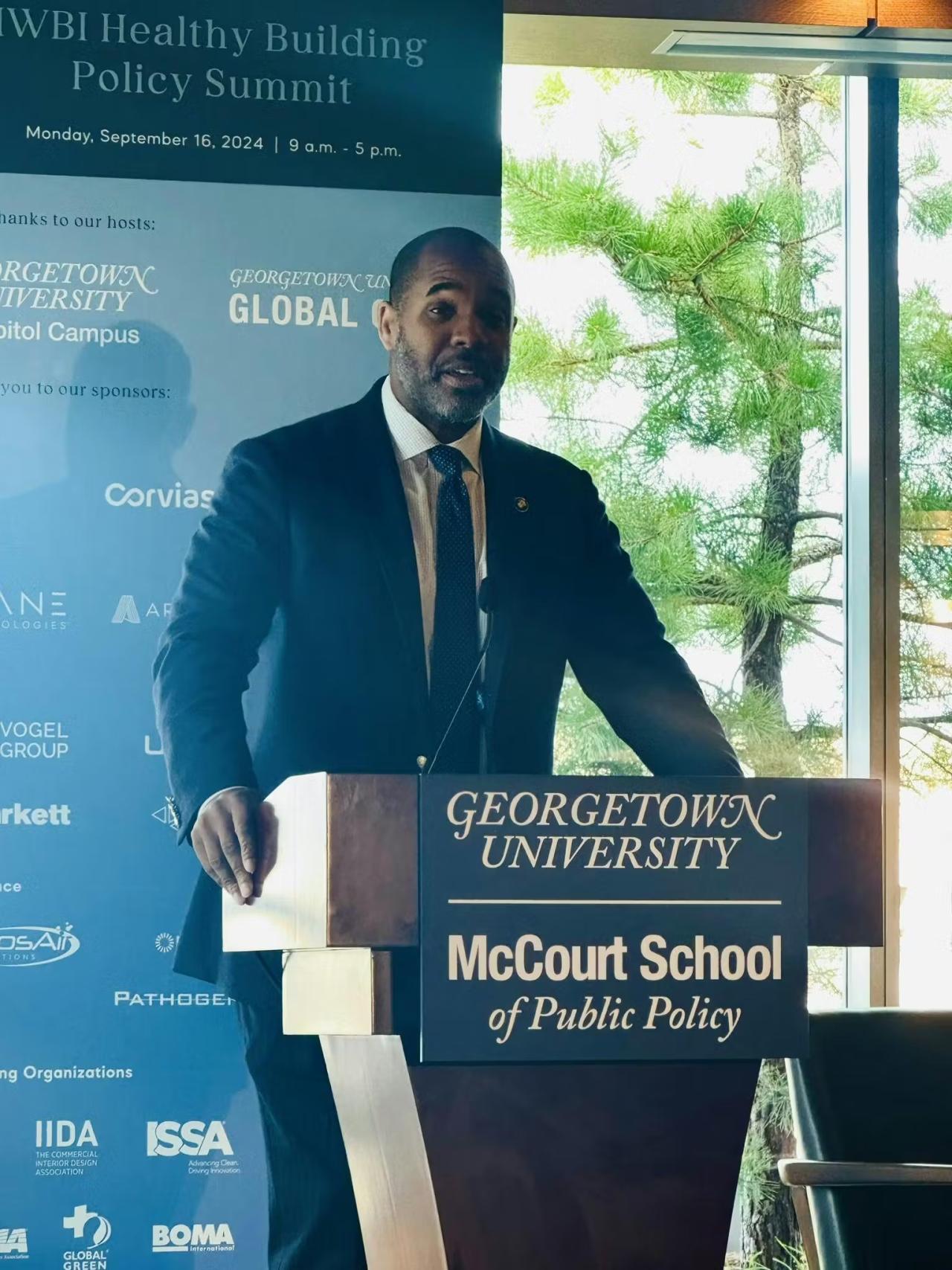
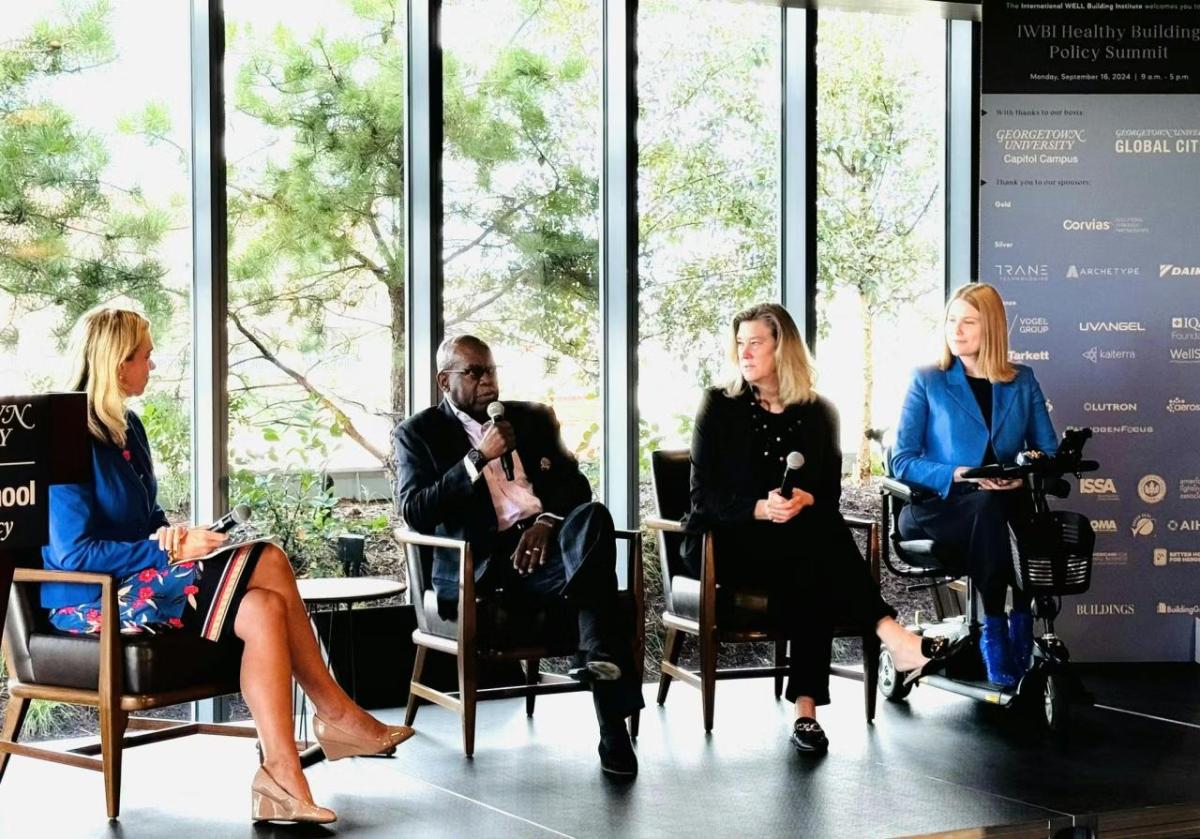
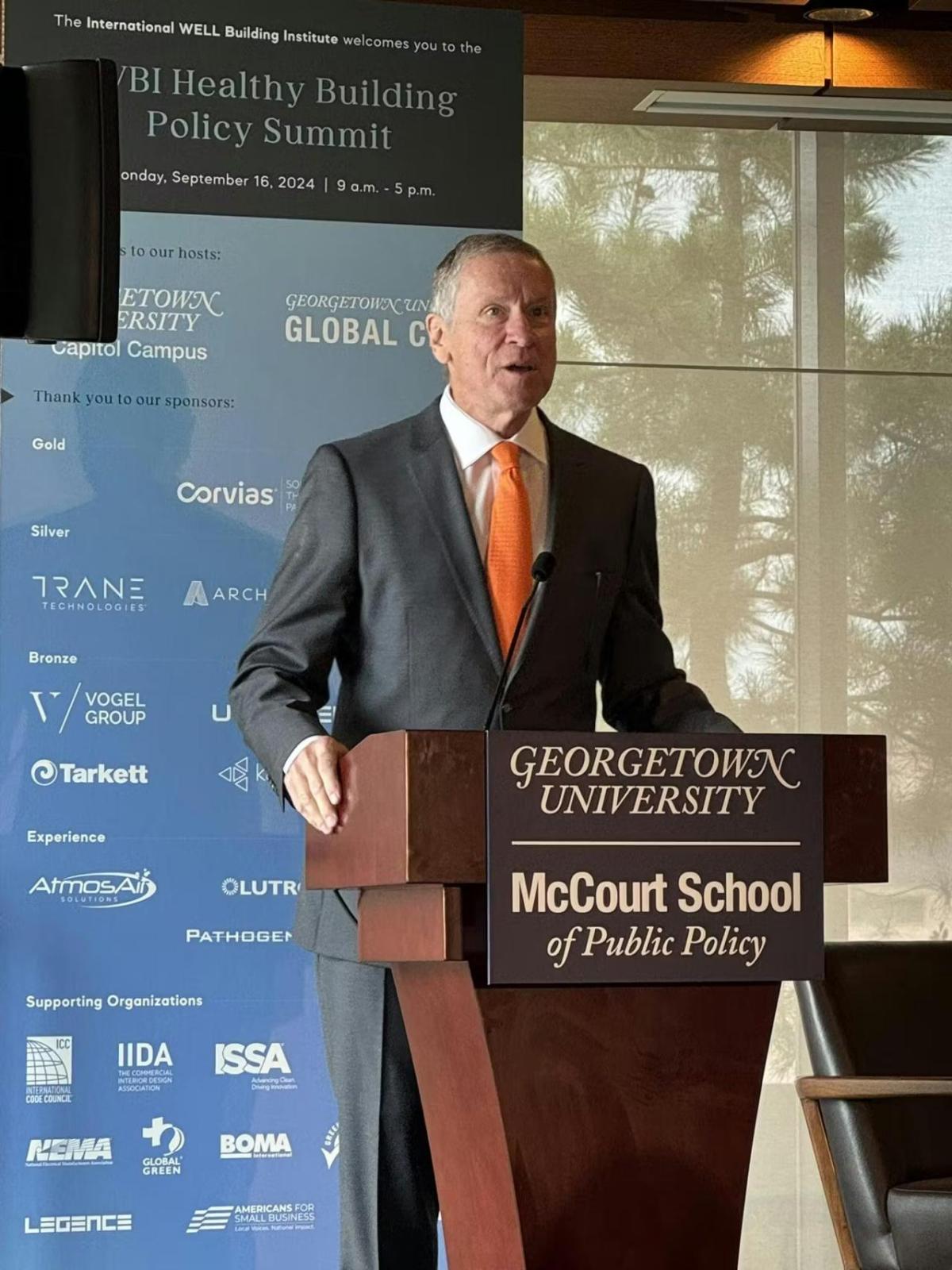
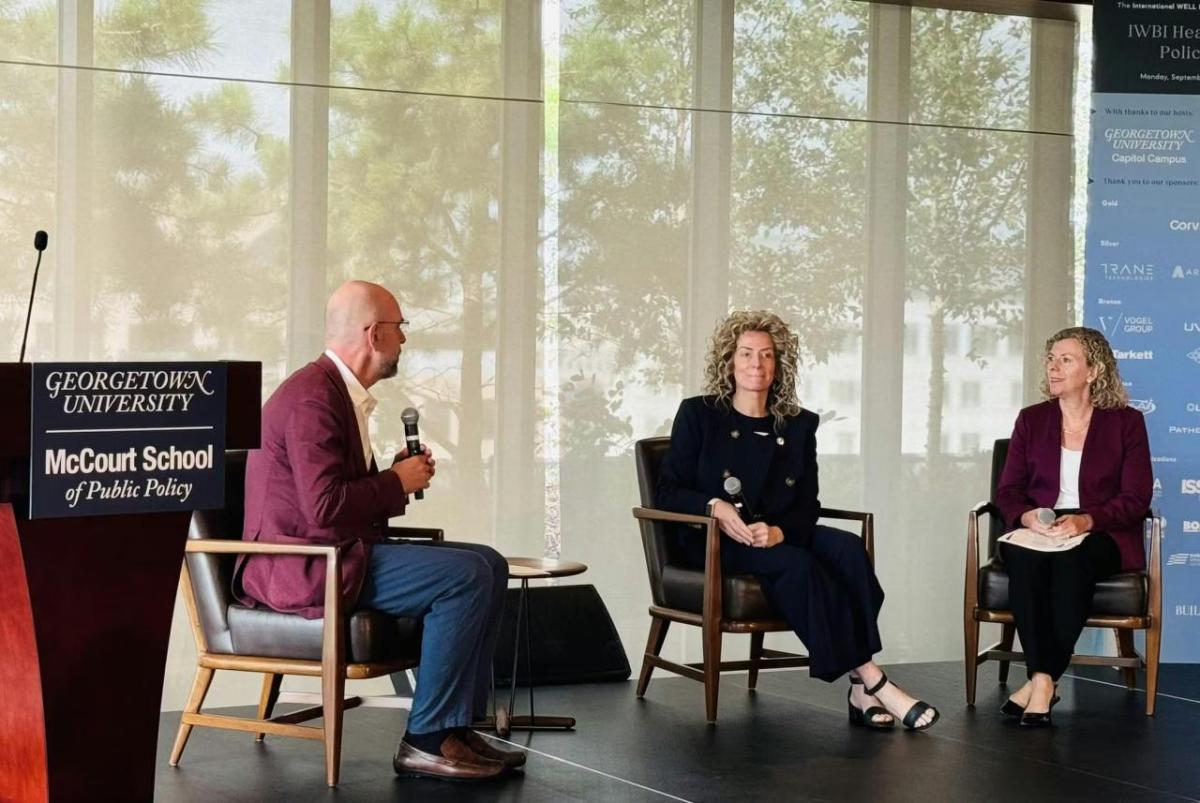
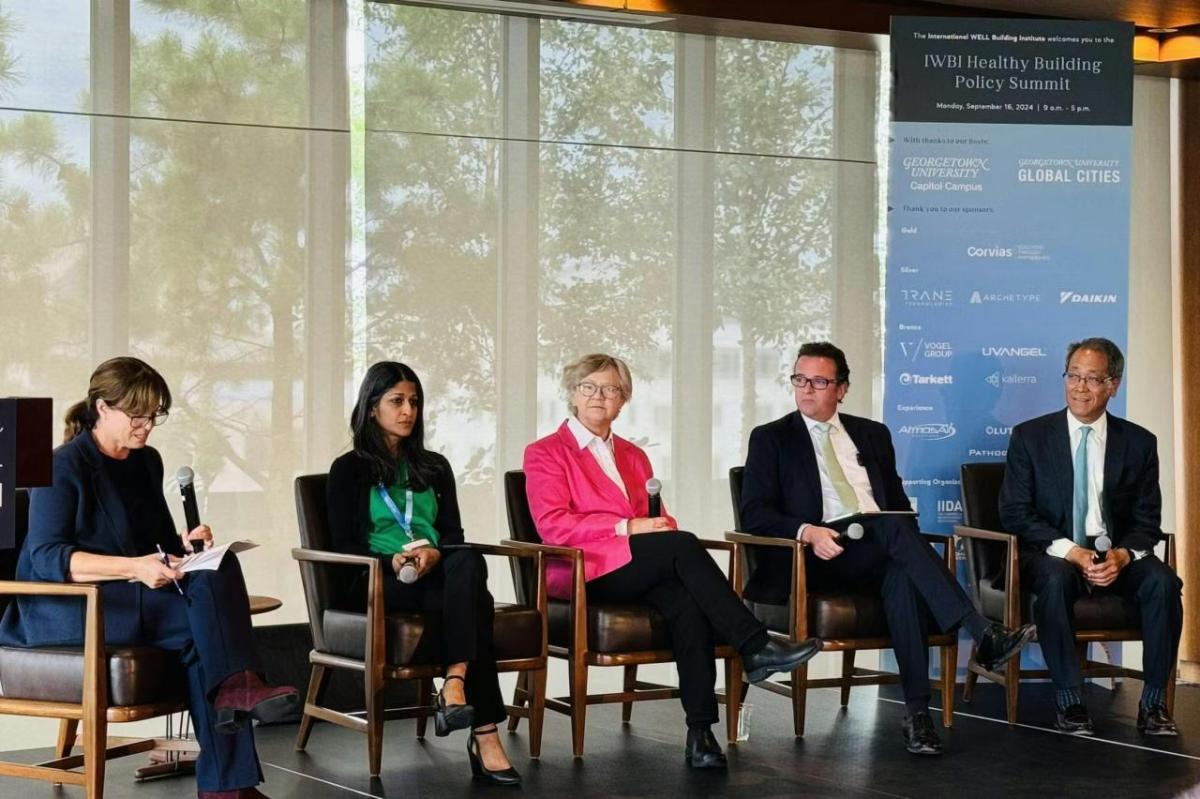
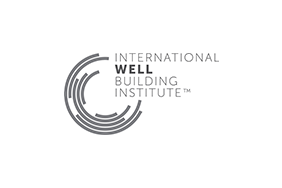
International WELL Building Institute
International WELL Building Institute
The International WELL Building Institute (IWBI) is a public benefit corporation and the world’s leading organization focused on deploying people-first places to advance a global culture of health. IWBI mobilizes its community through the administration of the WELL Building Standard (WELL Standard) and WELL ratings and certifications, management of the WELL AP credential, the pursuit of applicable research, the development of educational resources and advocacy for policies that promote health and well-being everywhere. More information on WELL can be found here.
IWBI is a participant of the United Nations Global Compact, the world’s largest corporate citizenship initiative, and helps companies advance the UN Sustainable Development Goals (SDGs) through the use of WELL.
More from International WELL Building Institute

